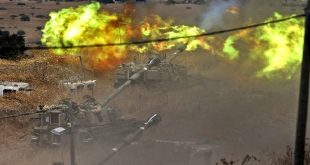By SJA Jafri + AFP
07 August, 2019
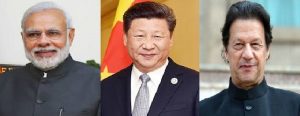 BEIJING/ NEW DELHI/ ISLAMABAD: Pakistan announced Wednesday that it was expelling the Indian High Commissioner and suspending bilateral trade with its nuclear-armed neighbour, days after New Delhi stripped the disputed Kashmir region of its special autonomy.
BEIJING/ NEW DELHI/ ISLAMABAD: Pakistan announced Wednesday that it was expelling the Indian High Commissioner and suspending bilateral trade with its nuclear-armed neighbour, days after New Delhi stripped the disputed Kashmir region of its special autonomy.
“We will call back our ambassador from Delhi and send back their” envoy, foreign minister Shah Mehmood Qureshi announced in televised comments.
Qureshi spoke as the government released a statement declaring that Pakistan will suspend trade with India in a downgrading of diplomatic ties between the arch-rivals.
Islamabad also vowed to take the matter to the United Nations Security Council (UNSC).
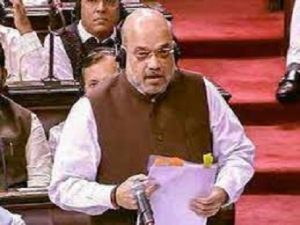 Monday’s decision by Prime Minister Narendra Modi’s government to tighten control on the Muslim-majority Kashmir had been widely expected to trigger conflict with Pakistan and reignite an insurgency that has already cost tens of thousands of lives.
Monday’s decision by Prime Minister Narendra Modi’s government to tighten control on the Muslim-majority Kashmir had been widely expected to trigger conflict with Pakistan and reignite an insurgency that has already cost tens of thousands of lives.
Delhi has insisted that the move is an internal matter.
Kashmir has been divided between Pakistan and India since independence in 1947.
A day prior, Prime Minister Imran Khan vowed to fight the issue “on every forum” and demanded the international community take action, accusing Modi of an anti-Muslim agenda. The Pakistani military has also said it “firmly stands” with Kashmiris.
On the other hand the conflict in-between three nuclear states is becoming hot day by day but the world is still silent even the United Nations Organizations (UNO) is also either in sleeping or does not want to interfere because of the triangle of America,
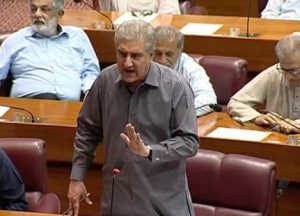 Israel and India while the Arab counties have either trapped by US earlier or the trapped countries have neither any urge to speak-out nor they have any weight or influence or have any interest against Kashmir like Palestine that’s why the situation is not only going worst in Indian-occupied-Kashmir rapidly but also ‘time’ is also being past very fast to overcome the situation and after China’s warning to India over Kashmir’s Ladakh territory, experts, officials of aggrieved states, foreign affairs analysts, Kashmiri victims and general people of the region told PMI.
Israel and India while the Arab counties have either trapped by US earlier or the trapped countries have neither any urge to speak-out nor they have any weight or influence or have any interest against Kashmir like Palestine that’s why the situation is not only going worst in Indian-occupied-Kashmir rapidly but also ‘time’ is also being past very fast to overcome the situation and after China’s warning to India over Kashmir’s Ladakh territory, experts, officials of aggrieved states, foreign affairs analysts, Kashmiri victims and general people of the region told PMI.
China also accuses India of harming sovereignty
India’s move to abolish the decades-long autonomy of Kashmir has drawn strong reaction from its neighbors, with China accusing New Delhi of undermining its territorial sovereignty and Pakistan’s army vowing to go to “any extent” to stand by the Himalayan state.
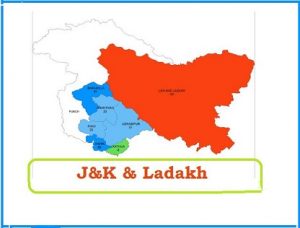 China’s strongly-worded statement was most critical of the impact of India’s actions on the mainly Buddhist region of Ladakh — an area of strategic importance nestled between Tibet and Pakistan.e in 70 years Boosts Mo
China’s strongly-worded statement was most critical of the impact of India’s actions on the mainly Buddhist region of Ladakh — an area of strategic importance nestled between Tibet and Pakistan.e in 70 years Boosts Mo
Just two years after India and China’s decades-long dispute flared up over a remote area of the Himalayas, and six months after the most serious military escalation between India and Pakistan in decades, Prime Minister Narendra Modi’s surprise move on Kashmir has inflamed tensions yet again.
Beijing has always opposed India’s inclusion of Chinese territory in the western section of the China-India border, Chinese Foreign Ministry spokeswomen Hua Chunying said in a statement Tuesday.
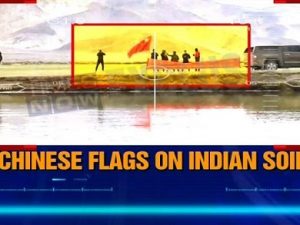 “The recent unilateral revision of domestic laws by the Indian side continues to undermine China’s territorial sovereignty, which is unacceptable and will not have any effect,” Hua said.
“The recent unilateral revision of domestic laws by the Indian side continues to undermine China’s territorial sovereignty, which is unacceptable and will not have any effect,” Hua said.
India’s Ministry of Foreign Affairs spokesman Raveesh Kumar said Tuesday the creation of a new union territory of Ladakh was an internal matter.
“So far as the India-China Boundary Question is concerned, the two sides have agreed to a fair, reasonable and mutually acceptable settlement,” Kumar said in a statement. “India does not comment on the internal affairs of other countries and similarly expects other countries to do likewise.”
‘We Will Retaliate?’
Pakistan’s Prime Minister Imran Khan said India’s move may lead to a war, while its army pledged to go to “any extent’’ to defend the people of the disputed state that’s claimed in full by the two nuclear-armed nations.
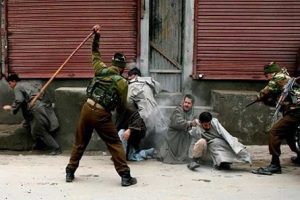 “We will retaliate any attack” on part of Kashmir controlled by Pakistan, Khan said at a meeting of parliament that was called to debate the move. “This is not a nuclear blackmail. The world will be responsible if it doesn’t take action against India.”
“We will retaliate any attack” on part of Kashmir controlled by Pakistan, Khan said at a meeting of parliament that was called to debate the move. “This is not a nuclear blackmail. The world will be responsible if it doesn’t take action against India.”
Earlier, Foreign Minister Shah Mahmood Qureshi wrote a letter to the secretary general of the United Nations on the “critical situation”, according to a tweet by the government on Tuesday.
Pakistan’s army said it “stands by the Kashmiris in their struggle to the very end. We are prepared and shall go to any extent to fulfill our obligations.” It will not recognize the “sham” Indian efforts to revoke Kashmir’s autonomy, spokesman General Asif Ghafoor said in a tweet after a meeting of top army commanders.
India has accused Pakistan of using militant groups including Jamaat-ud-Dawa led by Hafiz Saeed, the suspected planner of the 2008 Mumbai attacks, of waging a proxy war in Kashmir. Islamabad denies the charges.
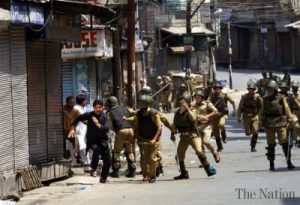 Border Issues
Border Issues
China, meanwhile, expressed serious concerns about the current situation in Kashmir.
“We call on India and Pakistan to peacefully resolve relevant disputes through dialogue,” she said, noting China had urged India to “avoid any move that further complicates the border issue.”
India and China have long had border disputes in Ladakh, which was made a federally administered region along with the move to remove the special status to Kashmir in parliament on Monday. A two-week standoff ensued in September 2014 when Chinese troops advanced several kilometers into northern Ladakh.
Iran urges India & Pakistan to settle Kashmir conflict peacefully
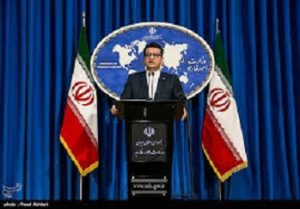 Iran’s Foreign Ministry has called on India and Pakistan to adopt peaceful approaches to resolving the tensions in the disputed Kashmir region after New Delhi stripped India-administered Kashmir of special constitutional status.
Iran’s Foreign Ministry has called on India and Pakistan to adopt peaceful approaches to resolving the tensions in the disputed Kashmir region after New Delhi stripped India-administered Kashmir of special constitutional status.
In a statement in reaction to the latest developments in Jammu and Kashmir, Foreign
Ministry Spokesman Abbas Mousavi said on Wednesday, “The Islamic Republic of Iran has been closely monitoring the Indian government’s recent decisions on Jammu and Kashmir, and is carefully listening to the explanations provided by the Indian and Pakistani officials for the recent developments.”
“The Islamic Republic of Iran expects India and Pakistan, as its regional friends and partners, to take effective steps to serve the interests of people of the region by adopting peaceful approaches and dialogue,” Mousavi added.
His comments came after the Indian government revoked the special status of India-administered Kashmir, in a move that risks fueling already heightened tensions with neighboring Pakistan.
 Monday’s presidential decree revoked Article 370 of India’s constitution that guaranteed special rights to the Muslim-majority state, including its right to its own constitution and decision-making process for all matters except defense, communications and foreign affairs.
Monday’s presidential decree revoked Article 370 of India’s constitution that guaranteed special rights to the Muslim-majority state, including its right to its own constitution and decision-making process for all matters except defense, communications and foreign affairs.
In the lead-up to its move, India sent thousands of additional troops to the region, imposing a curfew on parts of it, shutting down telecommunications and arresting political leaders.
Both India and Pakistan claim Kashmir in full, but rule it in part. The two neighbors have fought two of their three wars over the disputed territory.
 Pressmediaofindia
Pressmediaofindia



